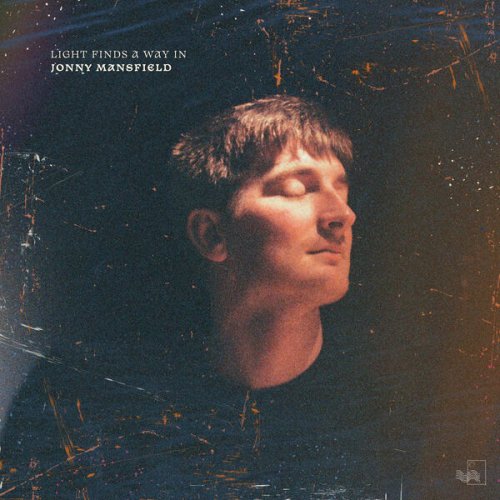Mariah the Scientist - MASTER (2019)

Artist: Mariah the Scientist
Title: MASTER
Year Of Release: 2019
Label: RCA Records / Sony Music Entertainment
Genre: R&B, Soul
Quality: 320 / FLAC (tracks)
Total Time: 28:18
Total Size: 66 / 172 Mb
WebSite: Album Preview
Tracklist: Title: MASTER
Year Of Release: 2019
Label: RCA Records / Sony Music Entertainment
Genre: R&B, Soul
Quality: 320 / FLAC (tracks)
Total Time: 28:18
Total Size: 66 / 172 Mb
WebSite: Album Preview
1. Note to Self (2:06)
2. In My Nightmares (2:32)
3. Note to You (1:23)
4. Hotel (Interlude) (0:46)
5. Reminders (3:55)
6. Thanks 4 Nothing (3:00)
7. Beetlejuice (3:43)
8. 7am (3:46)
9. Disclosure (3:53)
10. Not a Love Song (3:14)
The major-label debut from the Atlanta R&B singer offers a layered, mesmerizing portrait of modern romance.
Mariah the Scientist’s boyfriend was tripping on drugs at 7 a.m. when she realized she loved him, maybe. On her major-label debut, Master, the Atlanta R&B singer staggers away from something equally as reckless, struggling not to be re-hypnotized by nostalgia. “The idea of love and who I was with—they’ve become my master of some sort,” she explained, “when I should have just been myself.” As she writhes against the vice-grip of a toxic relationship, she paints an image of modern romance that’s impressively refined, vivid, and unblinkingly honest. The album is a powerful presentation of her attempt to reclaim control over herself.
Mariah may only be 21, but Master is imbued with the wearied maturity of someone much older: a veteran of love dragged five miles past hell and back, robbed of everything but her own dignity and defiance. While most of the album renders her misery vibrantly, it falters slightly at the start: In “Note to Self,” Mariah tediously spells out her worst tendency: “S-E-L-F-D-E-S-T-R-U-C-T-I-V-E, I need help,” she sings flatly, as if reciting self-help mantras in her bedroom.
But as the album progresses, it plunges forcefully into the messiness of desire. The shards of her past love assemble, offering glints of clarity. “You left me for a bitch in a city full of palm trees,” she announces on “Note to You,” “I never knew that it would haunt me.” Veering from sneering to sad, indignant to wistful, as if negotiating emotions in real-time, Mariah is unflinching about the after-effects of letting go. In the tortured “Thanks 4 Nothing,” she reveals that she left her boyfriend on her birthday, and yet she stayed up, hurting. “Why you never call me?” she cries out on more than one song.
Like SZA before her, Mariah sings in a colloquial style that hovers somewhere in between plain speech and melody, her gravelly voice foregrounded over sparse instrumentals. With the exception of “Hotel,” a gorgeous vocoder interlude, the strongest tracks are backed only by guitar and light drums. This stark arrangement heightens the urgency of her deeply personal accounts: On “Beetlejuice,” a slick, withering remembrance of her lover’s deception, Mariah recalls how she was lied to, guilted into forgiveness, then seduced to Frank Ocean’s Blonde. It’s a scathing drag of a “sensitive” man who is only sensitive to the needs of himself.
But it also implicates Mariah as a woman who’s been played before: Master grapples with its heroine’s self-delusion and insecurity as much as the misconduct of the person who wronged her. It’s haunted by the persistent reminder that she should have known. This indictment, the constant seesawing between self-reprobation and longing, weaves much-needed complexity into a story of heartbreak that could easily feel one-dimensional. Combined with the unvarnished quality of her voice, the cumulative effect is mesmerizing.
Mariah the Scientist’s boyfriend was tripping on drugs at 7 a.m. when she realized she loved him, maybe. On her major-label debut, Master, the Atlanta R&B singer staggers away from something equally as reckless, struggling not to be re-hypnotized by nostalgia. “The idea of love and who I was with—they’ve become my master of some sort,” she explained, “when I should have just been myself.” As she writhes against the vice-grip of a toxic relationship, she paints an image of modern romance that’s impressively refined, vivid, and unblinkingly honest. The album is a powerful presentation of her attempt to reclaim control over herself.
Mariah may only be 21, but Master is imbued with the wearied maturity of someone much older: a veteran of love dragged five miles past hell and back, robbed of everything but her own dignity and defiance. While most of the album renders her misery vibrantly, it falters slightly at the start: In “Note to Self,” Mariah tediously spells out her worst tendency: “S-E-L-F-D-E-S-T-R-U-C-T-I-V-E, I need help,” she sings flatly, as if reciting self-help mantras in her bedroom.
But as the album progresses, it plunges forcefully into the messiness of desire. The shards of her past love assemble, offering glints of clarity. “You left me for a bitch in a city full of palm trees,” she announces on “Note to You,” “I never knew that it would haunt me.” Veering from sneering to sad, indignant to wistful, as if negotiating emotions in real-time, Mariah is unflinching about the after-effects of letting go. In the tortured “Thanks 4 Nothing,” she reveals that she left her boyfriend on her birthday, and yet she stayed up, hurting. “Why you never call me?” she cries out on more than one song.
Like SZA before her, Mariah sings in a colloquial style that hovers somewhere in between plain speech and melody, her gravelly voice foregrounded over sparse instrumentals. With the exception of “Hotel,” a gorgeous vocoder interlude, the strongest tracks are backed only by guitar and light drums. This stark arrangement heightens the urgency of her deeply personal accounts: On “Beetlejuice,” a slick, withering remembrance of her lover’s deception, Mariah recalls how she was lied to, guilted into forgiveness, then seduced to Frank Ocean’s Blonde. It’s a scathing drag of a “sensitive” man who is only sensitive to the needs of himself.
But it also implicates Mariah as a woman who’s been played before: Master grapples with its heroine’s self-delusion and insecurity as much as the misconduct of the person who wronged her. It’s haunted by the persistent reminder that she should have known. This indictment, the constant seesawing between self-reprobation and longing, weaves much-needed complexity into a story of heartbreak that could easily feel one-dimensional. Combined with the unvarnished quality of her voice, the cumulative effect is mesmerizing.

![Nectar Woode - Live at Village Underground (Live At Village Underground) (2025) [Hi-Res] Nectar Woode - Live at Village Underground (Live At Village Underground) (2025) [Hi-Res]](https://img.israbox.com/img/2025-12/15/eiazyx7yigt2lhbv1tcd3eos6.jpg)
![Coco Chatru Quartet - Lost Christmas (2025) [Hi-Res] Coco Chatru Quartet - Lost Christmas (2025) [Hi-Res]](https://www.dibpic.com/uploads/posts/2025-12/1765719561_coco-chatru-quartet-lost-christmas-2025.jpg)
![Dave Holland - Emerald Tears (1977/2025) [Hi-Res] Dave Holland - Emerald Tears (1977/2025) [Hi-Res]](https://www.dibpic.com/uploads/posts/2025-12/1765891427_cover.jpg)
![Rachel Kitchlew, SFJ - Flirty Ghost (2025) [Hi-Res] Rachel Kitchlew, SFJ - Flirty Ghost (2025) [Hi-Res]](https://www.dibpic.com/uploads/posts/2025-12/1765896408_qvf41hr1ljj8a_600.jpg)
![Betty Carter - The Music Never Stops (2019) [Hi-Res] Betty Carter - The Music Never Stops (2019) [Hi-Res]](https://www.dibpic.com/uploads/posts/2025-12/1765896843_bcmn500.jpg)


